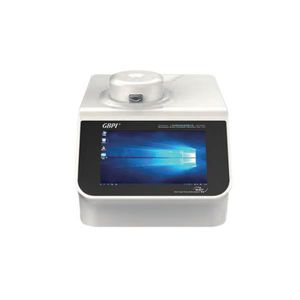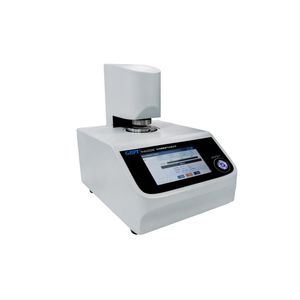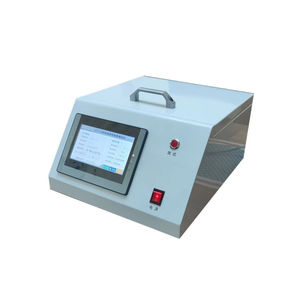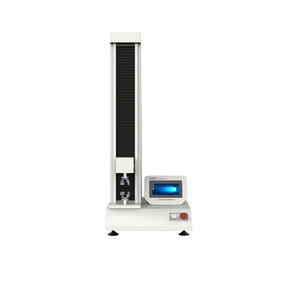
- Metrology - Laboratory
- Analytical Instrumentation
- Differential scanning calorimeter
- Guangzhou Biaoji Packaging Equipment Co., Ltd
Differential scanning calorimeter GB-DSC100A
Add to favorites
Compare this product
Characteristics
- Options
- differential scanning
Description
What is DSC?
Differential Scanning Calorimetry, or DSC, is a thermal
analysis technique that looks at how a material’s heat
capacity (Cp) is changed by temperature. A sample of
known mass is heated or cooled and the changes in its
heat capacity are tracked as changes in the heat flow.
This allows the detection of transitions such as melts,
glass transitions, phase changes, and curing. Because of
this flexibility, since most materials exhibit some sort of
transitions, DSC is used in many industries, including
pharmaceuticals, polymers, food, paper, printing,
manufacturing, agriculture, semiconductors, and electronics
The differential scanning calorimeter (DSC) is a fundamental tool in thermal
analysis. It can be used in many industries – from pharmaceuticals and
polymers, to nanomaterials and food products. The information these
instruments generate is used to understand amorphous and crystalline
behavior, polymorph and eutectic transitions, curing and degree of cure,
and many other material properties used to design, manufacture, and test
products.
Standard
UL 2591, INASA TM 2010-2l6099
Catalogs
No catalogs are available for this product.
See all of Guangzhou Biaoji Packaging Equipment Co., Ltd‘s catalogsOther Guangzhou Biaoji Packaging Equipment Co., Ltd products
Battery diaphragm tester series
Related Searches
- Gas analyser
- Concentration analyser
- Liquids analyser
- Desktop analyzer
- Automated analyzer
- Dust analyzer
- Spectrometer
- Water analyser
- Oxygen analyser
- Digital testing system
- Industrial testing system
- NDIR analyzer
- Spectrophotometer
- Automatic testing system
- Manual test kit
- Analyser for the food industry
- Carbon dioxide analyser
- Tester with LCD screen
- Quality control analyser
- Benchtop testing system
*Prices are pre-tax. They exclude delivery charges and customs duties and do not include additional charges for installation or activation options. Prices are indicative only and may vary by country, with changes to the cost of raw materials and exchange rates.










